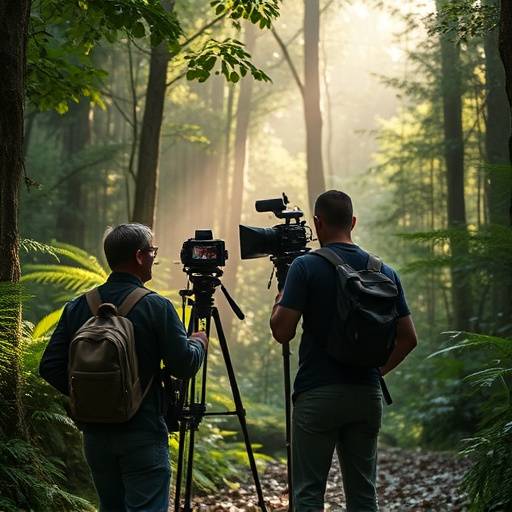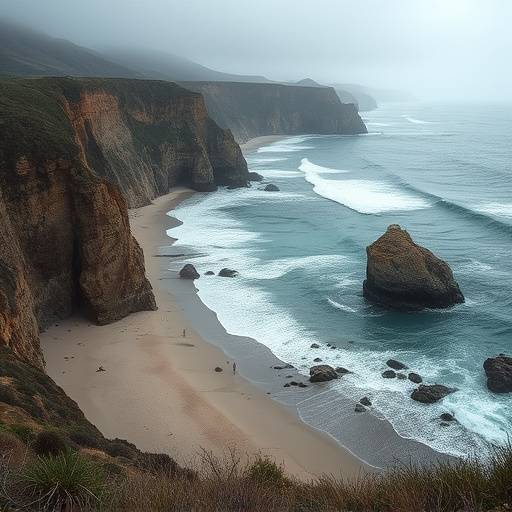The Rise of Sustainable Filming: Location Scouting with a Conscience

The film industry, known for its visual storytelling, is increasingly focusing on a crucial narrative: environmental sustainability. Location scouting, a cornerstone of film production, is undergoing a green revolution. At CineScapes, we are committed to promoting sustainable filming practices, connecting productions with eco-friendly locations, and providing resources to minimize environmental impact.
Sustainable location scouting involves a multi-faceted approach. It begins with selecting locations that minimize transportation distances, reducing carbon emissions. Utilizing local resources, crews, and vendors not only supports the local economy but also reduces the environmental footprint associated with long-distance travel and shipping. Another key aspect is minimizing waste on set by using reusable materials, implementing recycling programs, and avoiding single-use plastics.
CineScapes is partnering with organizations like Green Screen Los Angeles to promote these practices. We offer consultations on sustainable film production and provide access to a database of locations that prioritize environmental conservation. For example, our featured location, the Redwood National and State Parks in Northern California, requires strict adherence to sustainable filming guidelines, protecting the delicate ecosystem of the ancient redwood forests. By choosing such locations and adopting sustainable practices, filmmakers can contribute to preserving these natural wonders for future generations.
Anya Sharma, our lead environmental consultant, states, “The shift towards sustainable filming is not just a trend; it’s a responsibility. By making conscious choices in location scouting and production practices, we can minimize our impact on the environment and contribute to a more sustainable film industry.”
Unveiling the Hidden Gems: Lesser-Known Film Locations in Southern California

Southern California is synonymous with Hollywood, but beyond the iconic landmarks lie a treasure trove of lesser-known film locations waiting to be discovered. CineScapes is dedicated to uncovering these hidden gems, providing filmmakers with unique and captivating backdrops for their stories.
One such gem is the Palos Verdes Peninsula, offering stunning coastal landscapes, dramatic cliffs, and secluded beaches. Unlike the crowded beaches of Santa Monica and Malibu, Palos Verdes provides a sense of isolation and natural beauty, perfect for creating dramatic and atmospheric scenes. Another hidden treasure is the Vasquez Rocks Natural Area Park, known for its unique rock formations and otherworldly landscapes. This location has been used in numerous sci-fi and western films, offering a distinctive backdrop that is both visually striking and historically rich.
Further inland, the Antelope Valley Poppy Reserve boasts vibrant fields of wildflowers during the spring, creating a breathtaking visual spectacle. This location is ideal for filming scenes that require a touch of natural beauty and vibrant color. Similarly, the abandoned streets of Bodie, a ghost town in the Sierra Nevada mountains, offer a glimpse into the past, providing a haunting and evocative backdrop for period dramas and thrillers. Ben Carter, our location scouting specialist, notes, "These lesser-known locations provide filmmakers with the opportunity to create truly unique and memorable visuals, setting their productions apart from the rest."
Securing permits for these locations often requires working with local film offices and landowners. CineScapes offers comprehensive location scouting services, including permit acquisition, logistical planning, and on-site support, ensuring a smooth and successful filming experience.
The Art of Location Management: Ensuring a Smooth Filming Experience
Location management is a critical aspect of film production, ensuring that filming takes place smoothly and efficiently. A skilled location manager is responsible for securing permits, coordinating logistics, managing on-site operations, and maintaining positive relationships with local communities. CineScapes understands the importance of effective location management and provides comprehensive services to support film productions in achieving their creative vision.
The first step in location management is securing the necessary permits and permissions. This involves working with local film offices, landowners, and community organizations to obtain the required approvals. It also entails understanding and adhering to local regulations, ensuring compliance with environmental guidelines, and addressing any potential concerns from residents and businesses. Coordination of logistics is another key responsibility, including arranging transportation, accommodation, catering, and security for the cast and crew. On-site operations involve managing parking, setting up equipment, and ensuring the safety and well-being of everyone involved.
Maintaining positive relationships with local communities is essential for long-term success. This involves communicating effectively with residents, addressing their concerns, and minimizing disruption during filming. Chloe Davis, our head of location management, emphasizes the importance of building trust and rapport with local stakeholders. "Effective communication and a willingness to address concerns are crucial for creating a positive filming experience and ensuring the continued support of local communities."
CineScapes provides comprehensive location management services, including permit acquisition, logistical planning, on-site support, and community relations. Our team of experienced location managers is dedicated to ensuring that filming takes place smoothly, efficiently, and with minimal disruption to the local community.
Remote Location Scouting: Utilizing Technology to Find the Perfect Backdrop

In an increasingly digital world, remote location scouting is becoming an indispensable tool for filmmakers. Utilizing technology such as drone footage, virtual reality (VR), and online databases, location scouts can explore potential filming locations from anywhere in the world, saving time and resources. CineScapes is at the forefront of this trend, leveraging technology to provide clients with comprehensive and efficient location scouting services.
Drone footage offers a bird's-eye view of potential locations, allowing scouts to assess the overall landscape, terrain, and accessibility. VR technology provides an immersive experience, enabling filmmakers to virtually walk through locations and visualize scenes in detail. Online databases, such as the CineScapes location library, offer a vast collection of images, videos, and information on a wide range of potential filming locations. Ethan Foster, our lead technology specialist, highlights the benefits of remote location scouting. "Technology allows us to explore locations that would otherwise be difficult or impossible to access, providing filmmakers with a wider range of options and saving valuable time and resources."
Remote location scouting also facilitates collaboration between different departments, allowing directors, cinematographers, and production designers to work together remotely to select the perfect backdrop. CineScapes offers customized VR tours of potential locations, allowing clients to experience the environment firsthand and provide feedback in real-time. We also provide detailed drone footage and online resources to support the decision-making process.
By embracing technology, CineScapes is revolutionizing the way film locations are scouted, providing filmmakers with access to a wider range of options, saving time and resources, and facilitating collaboration between different departments.